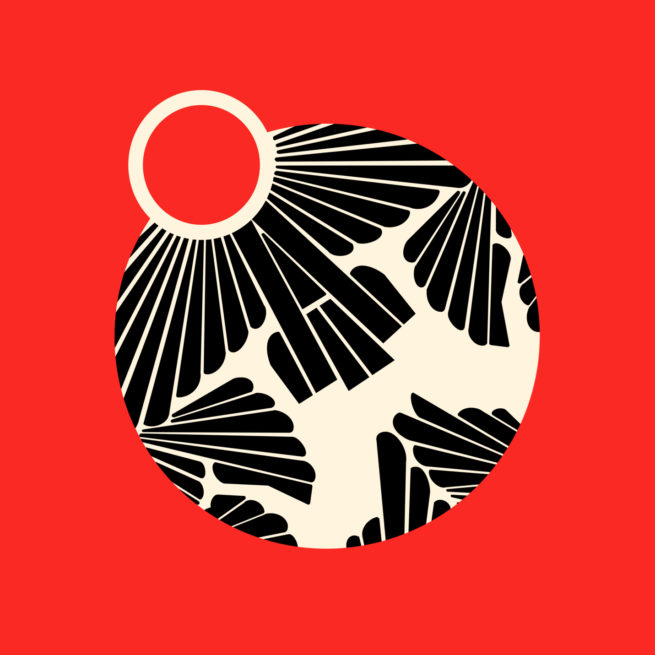Translated from Latin
[In the previous scene from the war in Latium, Mezentius brutally cut down Orodes on the Trojan side, and as the killing continues, Aeneas hunts Mezentius and his son, Lausus..]
IX. Aeneae magni dextra cadis.
Caedicus -> Alcathus
Sacratur Hydaspes
Rapo Parthenius
Orses
Messapus -> Clonius
Erictes
Valerus -> Agis
Salius -> Thronius
Nealces -> Salius
There’s plenty of death to go around
and Mars hands it out evenly to both sides.
Victors, vanquished, nobody gets out alive.
The gods watch. Feeling bad about it.
Venus looks on and across from her, Juno.
Pale Tisiphone stands out amidst the thousands weeping.
Mezentius sweeps storm-like across the field.
Like great Orion when he cuts a path across the ocean
shoulder
looming high over waves
or
brings down an old ash tree
from mountain heights.
Aeneas sees him from afar and moves fast.
Mezentius waits, grinning.
When he figures his foe is close enough, prays:
“May god bless my right hand
as it hurls this spear; this same hand
will bring you Lausus,
dressed in the armor
stripped from Aeneas’s corpse.”
And he lets fly.
But the missile glances off a shield
and sticks in the side of Antores
who’d been a friend of Hercules.
The poor bastard falls by an alien wound
and lies there dying, dreaming of Argos.
It’s Aeneas’s turn.
His spear pushes through three-fold bronze
of a shield and the linen-backed woven bull hide
worn by his enemy, lodging in the groin
but with no force driving it home.
Aeneas eagerly snatches his sword
and flies at his foe.
Lausus groans at the sight.
I’ll not leave you hanging
without words to recollect
your great deeds, and you
won’t be forgotten either,
young man…

He, Mezentius, critically injured
and giving ground, drags
his shield heavy with enemy’s dart.
His son rushes forward, leaps
amidst flashing weapons.
And just as Aeneas raises his sword
to finish Mezentius off, Lausus
stops him. Friends stream
around so that Lausus can
cover his hasty retreat.
Aeneas rages from under cover,
riding out the war-storm.
And he chides Lausus from a distance:
“You’ve got more bravery than sense, boy!
What a death your devotion leads you to…”
Nevertheless the young man exults madly.
Which drives Aeneas mad with anger.
He buries his sword in the boy’s chest
(the small shield, the tunic woven of gold
by his mom … what a paltry defense these are!)
and blood spurts out, followed by life itself
into the open air, into the shadows. But
Aeneas is also a son.
Seeing life leak out of Lausus,
the image of his own dear father
comes to mind.
“What can I do for you now,
poor boy, to acknowledge
your bravery? Your arms,
in which you reveled – keep those.
I’ll return you to the souls
and ashes of your folk. And
if it makes you feel any better:
You die by the hand of someone great.
Me, Aeneas.”
Then he razzes his allies and raises
the fallen chief from the ground,
where his pretty locks lie smeared
with blood.
Meanwhile the father, Mezentius, cleans his wounds
by the Tiber. Nearby: bronze helm, heavy arms.
His men hanging around. Many times
he asks about Lausus, many times
messengers bring back word. But now
they cry as they carry the body back
on empty armor – great man
felled by a great blow.
Mezentius, mourning:
“My boy, what was the feeling in me
that I let you face the enemy sword—
you, my offspring? Am I to be saved
by your wounds, alive through your death?
Alas, now I finally know the awfulness
of exile, and my god the wound runs deep.
It’s me, my son, who defiles your name
with guilt, driven from the throne.
For a long time now I’ve owed the fatherland
something, and I’d gladly repay the folks’ hatred
with my life. Which I still have–
but not for long.”
He rises, bum leg and all. Almost cheerfully,
he calls over his horse. A lovely animal
and a solace to him through many wars,
many victories.
He speaks to the animal:
“Rhaebus, we’ve been through a lot together.
Today either you’ll carry me again in victory
as I hold up gory spoils (the head of Aeneas)
and exact vengeance for poor Lausus–
or
if force can’t find a way, you’ll die with me.
Because, brave one, I believe you’d prefer death
to command by Trojan masters.”
Mezentius
climbs up on the beast’s back
clutching spears in each hand
his head gleaming with bronze
and heavy with horse-hair plumes
as he crashes into battle.
Vast shame mingled with mad grief
surges in his heart.
Three times he yells for Aeneas.
And it’s not like Aeneas doesn’t hear him.
Aeneas prays:
“Thus may the Father of the gods
let it be! Let the battle commence.”
Even while breathing these words he raises his spear.
But Mezentius says:
“Why try to shake me up, cruel bastard,
by killing my son? That’s the only way
you could kill me. Death doesn’t scare me.
Nor any of the gods. Hold on, for I want to die
and bring you these gifts in the meantime.”
And he throws his spear.
And another.
And another.


Three times he rides round his enemy,
hurling spears every time
but the Trojan hero
stands fast under his golden shield
until
ENOUGH
thinks Aeneas and throws
his own spear at the horse’s temple
so that it
feet
first
falls
tosses
rider
itself
flailing
armor
heap
whole shoulder
torn
tangled
SHOUTS
burn the sky from Trojan and Latin alike
Aeneas
flies to the man ripping his sword from its sheath
says
“Where’s all that tough talk
and crazy animus?”
Drawing a deep breath, the Tuscan replies:
“Shit. Why taunt me this way?
It’s no crime to kill me and the death
of Lausus left no treaty between us.
So do it. But let me be buried.
I know my people hate me, but
I beg you, let me escape their anger
and rest here with my son in the tomb.”
So speaking, without hesitation he offers
his neck to the blade and spills out his life
in blood on his armor.

(end book 10)
Caedicus Alcathoum obtruncat, Sacrator Hydaspen
partheniumque Rapo et praedurum viribus Orsen,
Messapus Cloniumque Lycaoniumque Erichaeten,
illum infrenis equi lapsu tellure iacentem, 750
hunc peditem. pedes et Lycius processerat Agis,
quem tamen haud expers Valerus virtutis avitae
deicit; at Thronium Salius Saliumque Nealces
insidiis, iaculo et longe fallente sagitta.
Iam gravis aequabat luctus et mutua Mavors 755
funera; caedebant pariter pariterque ruebant
victores victique, neque his fuga nota neque illis.
di Iovis in tectis iram miserantur inanem
amborum et tantos mortalibus esse labores;
hinc Venus, hinc contra spectat Saturnia Iuno. 760
pallida Tisiphone media inter milia saevit.
At vero ingentem quatiens Mezentius hastam
turbidus ingreditur campo. quam magnus Orion,
cum pedes incedit medii per maxima Nerei
stagna viam scindens, umero supereminet undas, 765
aut summis referens annosam montibus ornum
ingrediturque solo et caput inter nubila condit,
talis se vastis infert Mezentius armis.
huic contra Aeneas speculatus in agmine longo
obvius ire parat. manet imperterritus ille 770
hostem magnanimum opperiens, et mole sua stat;
atque oculis spatium emensus quantum satis hastae:
‘dextra mihi deus et telum, quod missile libro,
nunc adsint! voveo praedonis corpore raptis
indutum spoliis ipsum te, Lause, tropaeum 775
Aeneae.’ dixit, stridentemque eminus hastam
iecit. at illa volans clipeo est excussa proculque
egregium Antoren latus inter et ilia figit,
Herculis Antoren comitem, qui missus ab Argis
haeserat Evandro atque Itala consederat urbe. 780
sternitur infelix alieno vulnere, caelumque
aspicit et dulcis moriens reminiscitur Argos.
tum pius Aeneas hastam iacit; illa per orbem
aere cavum triplici, per linea terga tribusque
transiit intextum tauris opus, imaque sedit 785
inguine, sed viris haud pertulit. ocius ensem
Aeneas viso Tyrrheni sanguine laetus
eripit a femine et trepidanti fervidus instat.
ingemuit cari graviter genitoris amore,
ut vidit, Lausus, lacrimaeque per ora volutae— 790
hic mortis durae casum tuaque optima facta,
si qua fidem tanto est operi latura vetustas,
non equidem nec te, iuvenis memorande, silebo—
ille pedem referens et inutilis inque ligatus
cedebat clipeoque inimicum hastile trahebat. 795
proripuit iuvenis seseque immiscuit armis,
iamque adsurgentis dextra plagamque ferentis
Aeneae subiit mucronem ipsumque morando
sustinuit; socii magno clamore sequuntur,
dum genitor nati parma protectus abiret, 800
telaque coniciunt perturbantque eminus hostem
missilibus. furit Aeneas tectusque tenet se.
ac velut effusa si quando grandine nimbi
praecipitant, omnis campis diffugit arator
omnis et agricola, et tuta latet arce viator 805
aut amnis ripis aut alti fornice saxi,
dum pluit in terris, ut possint sole reducto
exercere diem: sic obrutus undique telis
Aeneas nubem belli, dum detonet omnis,
sustinet et Lausum increpitat Lausoque minatur: 810
‘quo moriture ruis maioraque viribus audes?
fallit te incautum pietas tua.’ nec minus ille
exsultat demens, saevae iamque altius irae
Dardanio surgunt ductori, extremaque Lauso
Parcae fila legunt. validum namque exigit ensem 815
per medium Aeneas iuvenem totumque recondit;
transiit et parmam mucro, levia arma minacis,
et tunicam molli mater quam neverat auro,
implevitque sinum sanguis; tum vita per auras
concessit maesta ad Manis corpusque reliquit. 820
At vero ut vultum vidit morientis et ora,
ora modis Anchisiades pallentia miris,
ingemuit miserans graviter dextramque tetendit,
et mentem patriae subiit pietatis imago.
‘quid tibi nunc, miserande puer, pro laudibus istis, 825
quid pius Aeneas tanta dabit indole dignum?
arma, quibus laetatus, habe tua; teque parentum
manibus et cineri, si qua est ea cura, remitto.
hoc tamen infelix miseram solabere mortem:
Aeneae magni dextra cadis.’ increpat ultro 830
cunctantis socios et terra sublevat ipsum
sanguine turpantem comptos de more capillos.
Interea genitor Tiberini ad fluminis undam
vulnera siccabat lymphis corpusque levabat
arboris acclinis trunco. procul aerea ramis 835
dependet galea et prato gravia arma quiescunt.
stant lecti circum iuvenes; ipse aeger anhelans
colla fovet fusus propexam in pectore barbam;
multa super Lauso rogitat, multumque remittit
qui revocent maestique ferant mandata parentis. 840
at Lausum socii exanimem super arma ferebant
flentes, ingentem atque ingenti vulnere victum.
agnovit longe gemitum praesaga mali mens.
canitiem multo deformat pulvere et ambas
ad caelum tendit palmas et corpore inhaeret. 845
‘tantane me tenuit vivendi, nate, voluptas,
ut pro me hostili paterer succedere dextrae,
quem genui? tuane haec genitor per vulnera servor
morte tua vivens? heu, nunc misero mihi demum
exitium infelix, nunc alte vulnus adactum! 850
idem ego, nate, tuum maculavi crimine nomen,
pulsus ob invidiam solio sceptrisque paternis.
debueram patriae poenas odiisque meorum:
omnis per mortis animam sontem ipse dedissem!
nunc vivo neque adhuc homines lucemque relinquo. 855
sed linquam.’ simul hoc dicens attollit in aegrum
se femur et, quamquam vis alto vulnere tardat,
haud deiectus equum duci iubet. hoc decus illi,
hoc solamen erat, bellis hoc victor abibat
omnibus. adloquitur maerentem et talibus infit: 860
‘Rhaebe, diu, res si qua diu mortalibus ulla est,
viximus. aut hodie victor spolia illa cruenti
et caput Aeneae referes Lausique dolorum
ultor eris mecum, aut, aperit si nulla viam vis,
occumbes pariter; neque enim, fortissime, credo, 865
iussa aliena pati et dominos dignabere Teucros.’
dixit, et exceptus tergo consueta locavit
membra manusque ambas iaculis oneravit acutis,
aere caput fulgens cristaque hirsutus equina.
sic cursum in medios rapidus dedit. aestuat ingens 870
uno in corde pudor mixtoque insania luctu.
atque hic Aenean magna ter voce vocavit. 873
Aeneas agnovit enim laetusque precatur:
‘sic pater ille deum faciat, sic altus Apollo!
incipias conferre manum.’
tantum effatus et infesta subit obvius hasta.
ille autem: ‘quid me erepto, saevissime, nato
terres? haec via sola fuit qua perdere posses:
nec mortem horremus nec divum parcimus ulli. 880
desine, nam venio moriturus et haec tibi porto
dona prius.’ dixit, telumque intorsit in hostem;
inde aliud super atque aliud figitque volatque
ingenti gyro, sed sustinet aureus umbo.
ter circum astantem laevos equitavit in orbis 885
tela manu iaciens, ter secum Troius heros
immanem aerato circumfert tegmine silvam.
inde ubi tot traxisse moras, tot spicula taedet
vellere, et urgetur pugna congressus iniqua,
multa movens animo iam tandem erumpit et inter 890
bellatoris equi cava tempora conicit hastam.
tollit se arrectum quadripes et calcibus auras
verberat, effusumque equitem super ipse secutus
implicat eiectoque incumbit cernuus armo.
clamore incendunt caelum Troesque Latinique. 895
advolat Aeneas vaginaque eripit ensem
et super haec: ‘ubi nunc Mezentius acer et illa
effera vis animi?’ contra Tyrrhenus, ut auras
suspiciens hausit caelum mentemque recepit:
‘hostis amare, quid increpitas mortemque minaris? 900
nullum in caede nefas, nec sic ad proelia veni,
nec tecum meus haec pepigit mihi foedera Lausus.
unum hoc per si qua est victis venia hostibus oro:
corpus humo patiare tegi. scio acerba meorum
circumstare odia: hunc, oro, defende furorem 905
et me consortem nati concede sepulcro.’
haec loquitur, iuguloque haud inscius accipit ensem
undantique animam diffundit in arma cruore.
Publius Vergilius Maro, known to us as Virgil (70 B.C.-19 C.E.), is best remembered for his masterpiece, The Aeneid, in which he represented the Emperor Augustus as a descendant of the half-divine Aeneas, a refugee from the fall of Troy and legendary founder of Rome. Virgil claimed on his deathbed that The Aeneid was unfinished and expressed a desire to have it burned, but it became the national epic of ancient Rome, a monument of Latin literature, and has been regarded as one of the great classics of Western literature ever since. Virgil’s other works include the Eclogues and the Georgics, also considered masterpieces.
David Hadbawnik is a poet and translator who currently teaches at University of Wisconsin- Eau Claire. His translation of Aeneid books 1-6 was published by Shearsman in 2015, with books 7-12 forthcoming; selections have appeared in Denver Quarterly, Chicago Review, and Blackbox Manifold, among other journals.
Omar Al-Nakib is a Kuwaiti visual artist and poet. He has exhibited locally, and his poetry has been published in Dispatches from the Poetry Wars and the AUKuwait Review.